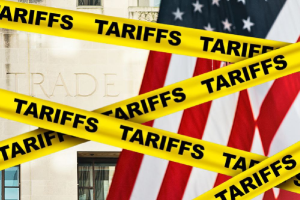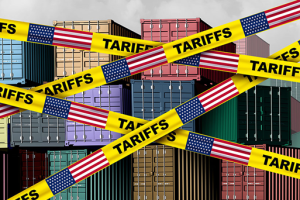
BY EYUEL KIFLU
The African Union (AU) is marking its 60th anniversary with a series of events to recognize and honor its remarkable path over the last six decades. The creation of the Organization of African Unity (OAU) is a significant achievement in Africa’s history, which united 32 independent African countries. The primary objective of this joint initiative was to develop a foundation for pan-African collaboration and solidarity.
The establishment of the OAU played a significant role in achieving the objective of a cohesive and autonomous Africa. It was a pivotal moment in the continent’s history that showcased the resolve of the newly sovereign nations to collaborate towards shared objectives and foster their collective interests. By creating the OAU, the countries strengthened their relationships economically, politically, and culturally and cooperated towards realizing a more prosperous and integrated future.
In Addis Ababa, an important moment in history occurred with the establishment of the OAU. This occasion was especially noteworthy as it took place in Ethiopia, a nation that had never been occupied by any European country. The location held great meaning, serving as a representation of Africa’s defiance against colonialism. It provided an ideal setting for the gathering of African nations who aimed to collaborate and create a brighter future for the continent and its inhabitants. The gathering was of great significance as it embodied Africa’s resolute commitment to freeing itself from the oppression of white colonial rule. The continent had endured the consequences of colonialism for many years, and this momentous occasion signified the conclusion of that era.
It marked a pivotal moment in African history, where the continent was seizing control of its future. The assembly represented an important stride towards constructing a robust and cohesive Africa. The establishment of the OAU marked a pivotal moment in the history of Africa, and its significance cannot be overstated. The event was highly significant, as it paved the way for the future of the continent. The principal objective of the conference was to unify the African nations, and it attracted leaders who were dedicated to achieving this aim. The creation of the OAU was a remarkable occurrence that marked an important moment in African history. It followed numerous decades of challenging experiences during colonialism that Africans faced, such as exploitation, oppression and marginalization. These difficulties resulted in widespread poverty and a lack of access to basic necessities, leaving many Africans uncertain about what lay ahead for them.
However, with the formation of the OAU, African leaders had an opportunity to redefine their destiny by setting an agenda for development, democracy, and cooperation. During the conference, they discussed critical issues such as political sovereignty, economic development and cooperation. Therefore, the OAU conference marked the beginning of a new era where Africans were determined to take charge of their destiny and create a brighter future for themselves and their future generations. The establishment of the OAU represented a significant shift from the past where Africa had been under the control of external forces. Instead, it gave Africans a platform to shape their destiny, promote their interests, and work towards bettering their lives.
The establishment of the OAU was a significant development for Africans. The organization provided the foundation for the creation of the AU, which represented a further step towards achieving the goal of a united continent. The OAU’s formation laid the groundwork for the AU’s emergence and highlighted the critical need for a unified approach to addressing Africa’s challenges. The AU aimed to build upon the progress made by the OAU and develop stronger cooperation among African nations. The organization sought to promote regional integration, enhance economic growth, and address common challenges such as poverty, disease, and conflict. The AU recognized that these issues were interconnected and could only be effectively addressed through a collective and comprehensive effort.
In Africa’s history, the establishment of the AU was an important event that signified a significant progress. It symbolized the collective determination of African nations to work together towards a shared vision of a better future and showed that the unity of the continent was essential in achieving sustainable development. By building on the foundations of the OAU, the AU’s objectives were aligned with those of its predecessor and articulated a clear vision for an Africa that is more prosperous, peaceful, and integrated. The creation of the AU was a demonstration of Africa’s determination to take control of its own future and work towards creating a better tomorrow.
By uniting under a common umbrella, African countries could leverage their collective strengths and resources to overcome challenges that no single nation could face on its own. Ultimately, the AU’s establishment marked a turning point in Africa’s history, and it continues to serve as a symbol of hope and unity for the continent to this day. The OAU was established with the goal of promoting unity and solidarity among African countries. Its charter laid out several objectives aimed at achieving this objective. One of the most significant goals was to coordinate and intensify cooperation efforts among African nations.
This meant that the organization aimed to bring together African nations to collaborate on various social, economic, and developmental issues. The OAU had multiple objectives, among them was to protect the sovereignty and territorial integrity of its member states. Sovereignty is a principle that emphasizes the exclusive authority of each country to govern itself without external interference. This means that every nation has complete control over its own internal affairs, and any interference from other nations could undermine their independence and threaten their security.
In this light, the OAU considered it imperative to safeguard the member states’ independence by ensuring they were not undermined by any foreign nation. The organization had the responsibility of making sure that the boundaries of each member state were respected and protected. Therefore, the OAU sought to prevent foreign aggression against its members by urging member countries to resolve their disputes through peaceful means. The OAU recognized that protecting its members’ sovereignty and territorial integrity was essential to achieving its broader goal of promoting African unity, solidarity, and development. As such, the organization remained committed to pursuing all necessary means to preserve its members’ sovereignty and territorial integrity.
The OAU had several prominent objectives that they were striving to accomplish, one of which was to rid the African continent of colonialism and apartheid. This goal was considered a high priority to the organization, as they aimed to eliminate any form of racial or economic oppression, exploitation, and domination of Africans by other nations. The removal of colonialism and apartheid was seen as a crucial stepping stone towards the realization of the other objectives outlined within the OAU charter. By ridding the continent of these obstacles, the organization could better pursue its goals of promoting unity, solidarity, and cooperation between African nations. The OAU recognized that without first addressing these issues, their ability to improve the continent’s welfare and promote peace and stability would be severely limited.
The Africa Union (AU) has been on a 60-year journey since its formation. Over this time, there have been various challenges and triumphs. One significant achievement was the achievement of independence from colonialism across the African continent. This historic event marked the end of an era of foreign domination and paved the way for self-rule. However, despite this significant milestone, Africa is still grappling with several struggles such as peace, security, and economic autonomy. During an interview with The Ethiopian Herald, James Pita Morgan, the South Sudanese Ambassador to Ethiopia, emphasized the pivotal role that our forefathers played in obtaining Africa’s independence from colonialism. Notably, he acknowledged their accomplishments in establishing the Organization of African Unity (OAU), which aimed to unify and liberate the continent.
The OAU was initially formed by 32 leaders who gathered in Addis Ababa in 1963. Today, the OAU has representatives from 55 nations attending its meetings. Thanks to our forefathers’ tireless work, the entire African continent has been freed from colonial powers and achieved independence. However, Africa has yet to achieve economic independence as we still heavily rely on foreign aid. This dependency on external support is unjust and unsustainable. It is time for our continent to break free from the shackles of foreign influence and take charge of our own economic affairs. “Although the Ukraine conflict has caused ripples across the globe, it is worrying to see how deeply it has impacted the lives of Africans. We must realize that this is not a matter to be proud of; how can we call ourselves independent if we are affected by conflicts thousands of miles away? It is time for us to reevaluate our position and adopt a more self-dependent approach,”
Furthermore, we must work towards ending internal civil warfare which only serves to weaken us as a continent. Let us come together, in unity and strength, to tackle the challenges that we face. Together, we can create a brighter future for Africa and its people. “We must put an end to these fights because they are affecting our people. Our people are now unable to cultivate for themselves, leading to a dependency on foreign food supplies. This is not beneficial for us and shows a weakness in our society,” he exclaimed.”
THE ETHIOPIAN HERALD WEDNESDAY 31 MAY 2023





